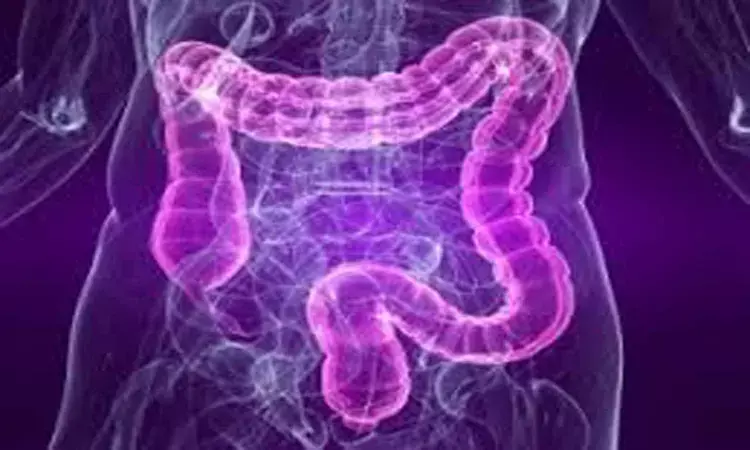- Home
- Medical news & Guidelines
- Anesthesiology
- Cardiology and CTVS
- Critical Care
- Dentistry
- Dermatology
- Diabetes and Endocrinology
- ENT
- Gastroenterology
- Medicine
- Nephrology
- Neurology
- Obstretics-Gynaecology
- Oncology
- Ophthalmology
- Orthopaedics
- Pediatrics-Neonatology
- Psychiatry
- Pulmonology
- Radiology
- Surgery
- Urology
- Laboratory Medicine
- Diet
- Nursing
- Paramedical
- Physiotherapy
- Health news
- Fact Check
- Bone Health Fact Check
- Brain Health Fact Check
- Cancer Related Fact Check
- Child Care Fact Check
- Dental and oral health fact check
- Diabetes and metabolic health fact check
- Diet and Nutrition Fact Check
- Eye and ENT Care Fact Check
- Fitness fact check
- Gut health fact check
- Heart health fact check
- Kidney health fact check
- Medical education fact check
- Men's health fact check
- Respiratory fact check
- Skin and hair care fact check
- Vaccine and Immunization fact check
- Women's health fact check
- AYUSH
- State News
- Andaman and Nicobar Islands
- Andhra Pradesh
- Arunachal Pradesh
- Assam
- Bihar
- Chandigarh
- Chattisgarh
- Dadra and Nagar Haveli
- Daman and Diu
- Delhi
- Goa
- Gujarat
- Haryana
- Himachal Pradesh
- Jammu & Kashmir
- Jharkhand
- Karnataka
- Kerala
- Ladakh
- Lakshadweep
- Madhya Pradesh
- Maharashtra
- Manipur
- Meghalaya
- Mizoram
- Nagaland
- Odisha
- Puducherry
- Punjab
- Rajasthan
- Sikkim
- Tamil Nadu
- Telangana
- Tripura
- Uttar Pradesh
- Uttrakhand
- West Bengal
- Medical Education
- Industry
Antibiotics use early in life increases risk of IBD later in life

Even short, single antibiotic courses given to young animals can predispose them to inflammatory bowel disease (IBD) when they are older, according to Rutgers researchers.
The study, published in Genome Medicine, provides further evidence supporting the idea that the use of antibiotics in children under 1 year old disrupts the intestinal microbiota -- the trillions of beneficial microorganisms that live in and on our bodies -- that play a crucial role in the healthy maturation of the immune system and the prevention of diseases, such as inflammatory bowel disease and type 1 diabetes.
"This study provides experimental evidence strengthening the idea that the associations of antibiotic exposures to the later development of disease in human children are more than correlations, but that they are actually playing roles in the disease causation," said study co-author Martin Blaser, director of the Rutgers Center for Advanced Biotechnology and Medicine.
To determine if the increased disease risk was due to the disruption of the microbiome from antibiotics, the researchers studied the effects of exposure to dextran sulfate sodium, a chemical known to injure the colon, both in mice that received antibiotics, and in mice that had perturbed microbial contents transplanted into their intestines versus a control group.
They found that the mice that received either the antibiotics themselves or received the antibiotic-perturbed microbiome had significantly worse colitis, showing that exposure to antibiotics changed the microbiome, altered the immune response in the colon and worsened the experimental colitis.
"The use of a well-validated model of colitis enabled us to study the effects of prior antibiotic exposures on the development of an important disease process," said lead author Ceren Ozkul, a visiting scholar from the Department of Pharmaceutical Microbiology at Hacettepe University in Turkey.
The study continues Blaser's work on the hypothesis that disrupting the early life microbiome, especially by antibiotics and C-section, is one of the factors driving modern epidemics.
Hina Zahid Joined Medical Dialogue in 2017 with a passion to work as a Reporter. She coordinates with various national and international journals and association and covers all the stories related to Medical guidelines, Medical Journals, rare medical surgeries as well as all the updates in the medical field. Email: editorial@medicaldialogues.in. Contact no. 011-43720751
Dr Kamal Kant Kohli-MBBS, DTCD- a chest specialist with more than 30 years of practice and a flair for writing clinical articles, Dr Kamal Kant Kohli joined Medical Dialogues as a Chief Editor of Medical News. Besides writing articles, as an editor, he proofreads and verifies all the medical content published on Medical Dialogues including those coming from journals, studies,medical conferences,guidelines etc. Email: drkohli@medicaldialogues.in. Contact no. 011-43720751


